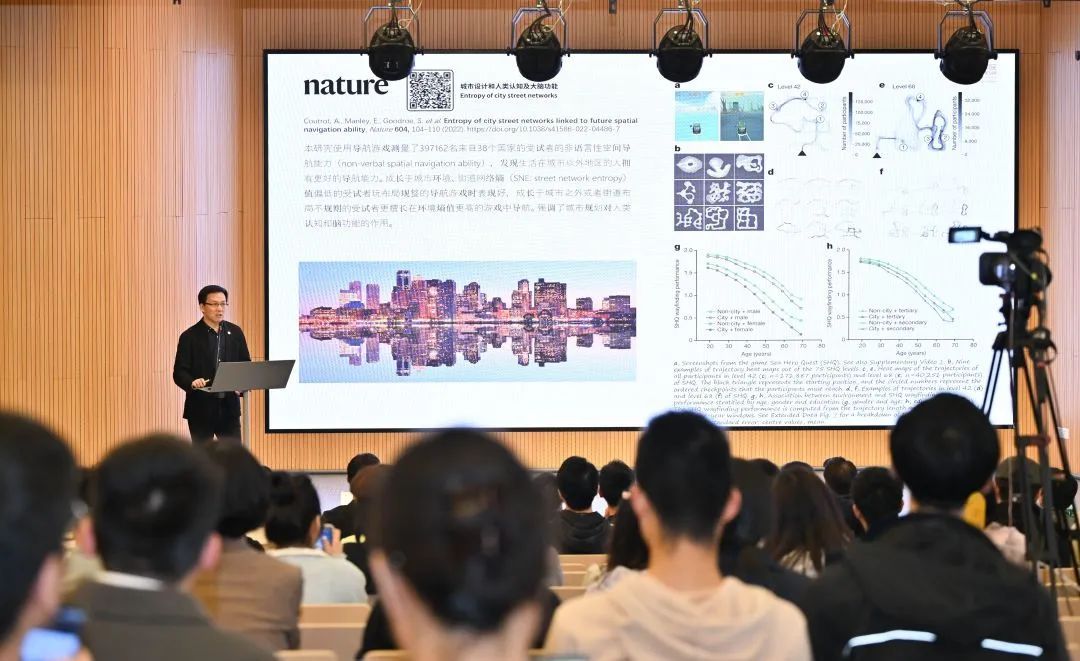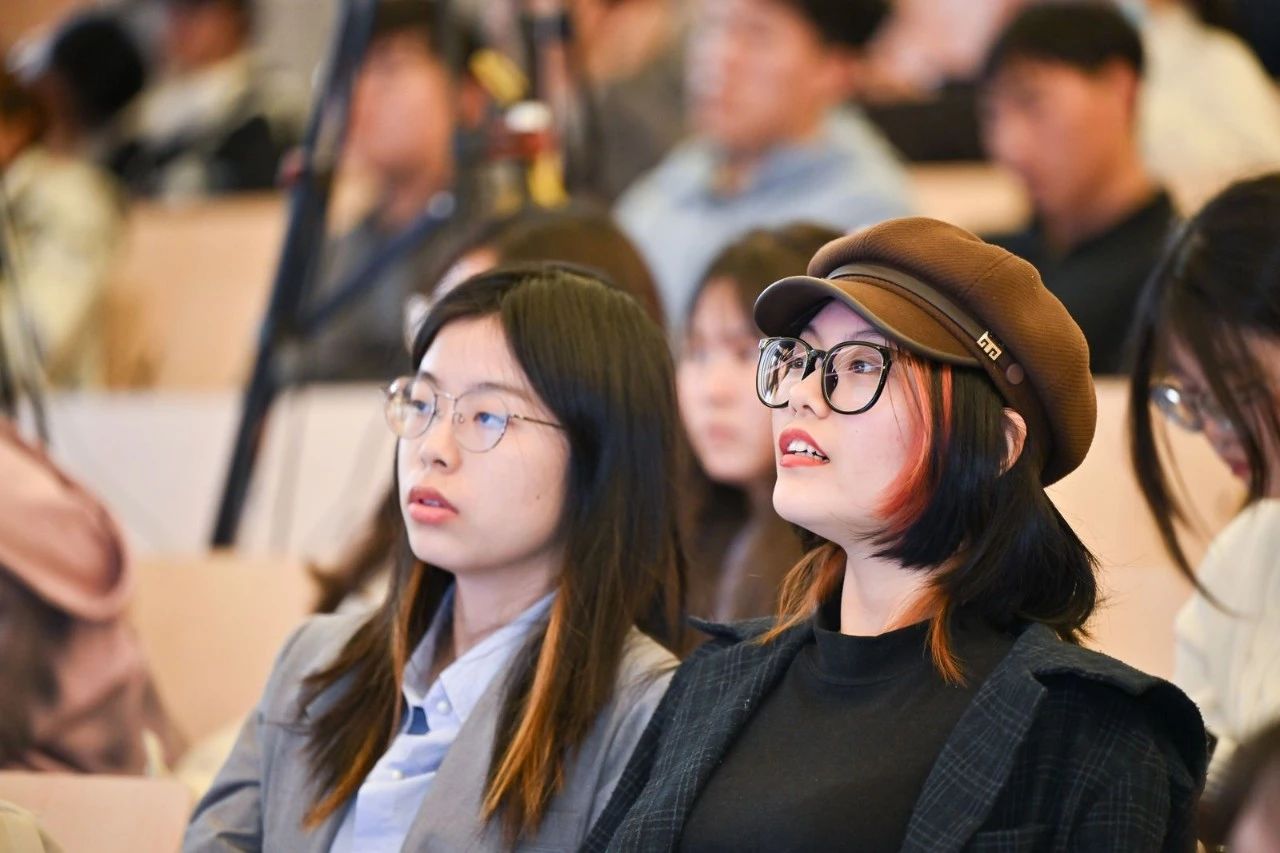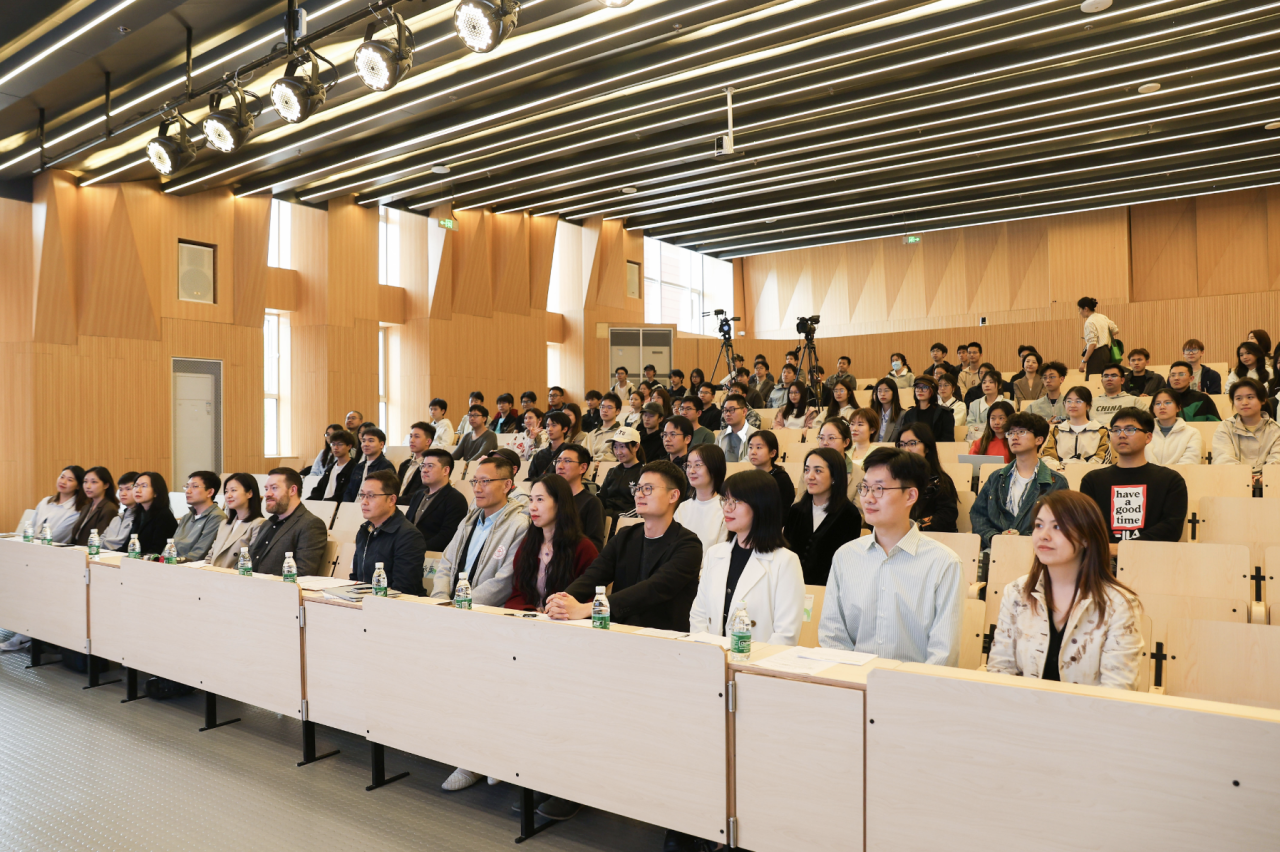Protecting the Earth for More Than a Day | Shanghai Jiao Tong School of Design and Dyson together create a blueprint for sustainable design
On April 19th, 2024, the 55th World Earth Day, the theme event "Design for a Sustainable Future", jointly organized by the Shanghai Jiao Tong School of Design and Dyson, was successfully held in the Yunjing Theatre in the School building.
Experts and scholars from the fields of academia, engineering and media, as well as the team that received the Dyson International Design Award, were invited to the event. They discussed the long-term development trend and path of sustainable design from different dimensions and perspectives. The event was hosted by TAN Xinyang, Assistant Professor of the Department of Design at the School of Design, and streamed live on multiple online platforms.

CAO Yongkang, Associate Dean of the School of Design, attended the event and delivered opening remarks. The School of Design is committed to cultivating design talent with social conscience, leadership, cosmopolitanism and truth-seeking spirit. Dyson is also committed to nurturing the next generation of inventors, and is actively driving the growth of "future inventors" through the annual Dyson Design Awards. Shanghai Jiao Tong School of Design and Dyson's vision of empowering future inventors and promoting innovation is highly compatible. CAO Yongkang emphasized that openness is an important driving force for the progress of human civilization, and cooperation is an indispensable path to lasting prosperity in the world. The forum is a fusion of technology and art, a collision of innovation and wisdom, and an in-depth exploration of future sustainable lifestyles. The two sides will cooperate closely and discuss how to jointly empower the new generation of design talent, cultivate talent with sustainable design concepts and practical abilities, provide continuous power for future sustainable development, provide innovative solutions to global challenges, and contribute wisdom and strength to the sustainable development of the planet.
Academic Discussion on Sustainable Design

CHE Shengquan, professor of the School of Design, gave a keynote speech titled "Sustainable Ecological Design for Climate Change". He emphasized that sustainable eco-design has become a joint effort with the increase of extreme climate events caused by rising global temperatures. In this context, eco-design based on the concept of climate-resilient sustainable development should be considered in terms of urban rainwater flooding, urban heat waves, biodiversity reduction, air pollution, carbon emissions, and storm surges. Prof. CHE analyzed and interpreted the understanding of sustainable eco-design by sharing the team's ideas and case studies in five areas: "Climate Change and Resilient Cities", "Habitat and Health", "Ecological Services and Biodiversity", "Water Environment and Ecology", "Numerical Simulation and Big Data". He also pointed out that research oriented towards "human and health", "human and environment", "human-computer interaction", "artificial intelligence", and more will be the trend in design research and an important element of human-centered sustainable development.

HAN Ting, professor of the School of Design, gave a keynote speech entitled "Research on Human-Centered Sustainable Healthcare Product Design". Prof. Han put forward the concept of human-centered sustainable development, which emphasizes the harmonious coexistence of people and the environment, and is particularly important in the field of healthcare. From the human perspective, sustainable development is committed to respecting individuals, safeguarding rights, improving the quality of life, and meeting people's multi-level and diversified needs. From the environmental perspective, the concept of sustainable development emphasizes the harmonious symbiosis between human activities and the natural environment, and advocates a green, low-carbon lifestyle. The introduction of machine learning and sensor technology has revolutionized the healthcare field. Understanding medical activities through environmental sensors not only improves the accuracy of diagnosis, but also provides better services to patients. The team has achieved a few results in building an intelligent health product and service system. By combining AI technology with medical diagnosis, the team applies advanced technology to assisted diagnosis of diseases, treatment assessment, prediction of prognosis and the rehabilitation process, bringing a better medical experience to patients. Prof. Han concluded by proposing to jointly build a human-centered, resilient and sustainable future through the concept of sustainable design, a healthy future in which there is a synergy between human intelligence and AI.
Enterprise Empowered Future Design
Julian Bond, Senior Manufacturing Engineer at Dyson, gave a presentation titled "How Dyson is committed to nurturing and driving the inventors of tomorrow". Starting from Dyson's engineering and design philosophy, he shared with the audience how Dyson's approach to designing innovative solutions starts from solving problems that are overlooked in people's daily lives, while at the same time taking into account how to utilize fewer resources to achieve better product performance. It is in this spirit of sustainable innovation, and in the hope that it will drive more inventors of the future, that Dyson has established the Dyson Design Award and added a sustainability award. The aim is to inspire more university students to invent in a sustainable way. Finally, he extended a sincere invitation to the students present: "We look forward to more Chinese students actively participating in international competitions, so that more Chinese designs can be put on the international stage, and together we can promote sustainable development in the future".
Local Practices and International Perspectives on Sustainable Design

One of the highlights of the event was the roundtable discussion on the theme of "Local Practices and International Perspectives on Sustainable Design", which was moderated by Xinyang TAN. The five panelists, Liu Ji, Editor-in-Chief of the Public Service Department of PenPower News, Julian Bond, Dyson engineer, WEN Xiaojing, Director of the Department of Design, ZHANG Liqing, Associate Professor of the Department of Landscape Architecture, and RAO Fujie, Assistant Professor of the Department of Architecture, engaged in a lively discussion on the relationship between innovative design and sustainable development, the trends and challenges of sustainable design, and the cultivation of innovative talents. The panelists discussed the relationship between innovative design and sustainable development, trends and challenges of sustainable design, and cultivation of innovative talent. Ms. Liu Ji shared the public's concerns in the field of sustainable design and explained the public's understanding of sustainable design from the media's professional point of view, while Mr. Julian Bond described Dyson's practice of sustainable design and discussed with the panelists the impact of sustainability concepts on design and product iteration. From the perspective of the historical evolution of sustainable concepts, Prof. WEN Xiaojing suggested that sustainable design needs to be measured in relation to its commercial value and to consider public acceptance. Prof. ZHANG Liqing shared her experience of working on sustainable design projects overseas and raised the challenge of localizing sustainable design. From his personal experience of using products, Prof. RAO Fujie suggested that sustainable design needs to pay attention to technological updates as well as changes in user behavior brought about by product upgrades. Finally, all the panelists gave valuable advice to the students on how to grasp the learning opportunities and resources.
Sustainable Innovation Design Award Winning Case Sharing
In addition, the winners of the International Sustainability Award of Dyson Design Award 2023, Mr. Chen Haifeng and Ms. Xiao Can, shared their winning case study of sustainable innovation design. They introduced their winning project E-COATING in detail, and shared their invention story and initial progress of their business.



Empowering Sustainable Design, Building Green Earth Dreams Together
This event discussed how to jointly empower the new generation of design talent and cultivate talent through sustainable design concepts and practical abilities, so as to provide continuous power for sustainable development in the future. Shanghai Jiao Tong School of Design and Dyson are committed to tackling global challenges through innovative solutions and contributing to the sustainable development of the planet. Through the exploration and efforts in eco-design, circular economies and product design, as well as smart technology and lifestyle, Shanghai Jiao Tong School of Design and Dyson will work together to create a better and sustainable future, and write a new chapter of green development for the earth.

About the Dyson Design Awards
"Young designers have the ability to develop technologies that can change human life. The Dyson Design Award is about encouraging these people who stick up for their ideals."
--James Dyson
The Dyson Design Awards is an international design and engineering award that recognizes, encourages and inspires the next generation of engineers. The Dyson Design Award has awarded more than £1 million in prizes to over 400 young engineers from around the world. The aim of the award is to design a solution to a specific problem. The problem can be a minor nuisance that plagues the daily lives of ordinary people, or a major global challenge. Most importantly, the solution needs to be effective and demonstrate clever design thinking.
Enter the Dyson Design Award 2024
Design for a sustainable future!